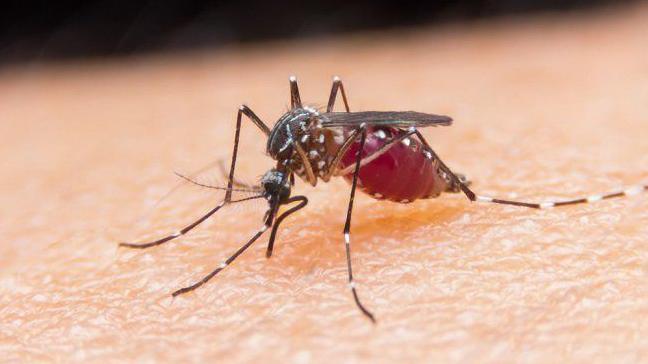Egypt declared malaria-free after 100-year effort

Malaria is caused by a complex parasite which is spread by mosquito bites
- Published
Egypt has been certified malaria-free by the World Health Organization (WHO) - an achievement hailed by the UN public health agency as "truly historic".
“Malaria is as old as Egyptian civilization itself, but the disease that plagued pharaohs now belongs to its history," said WHO chief Tedros Adhanom Ghebreyesus.
Egyptian authorities launched their first efforts to stamp out the deadly mosquito-borne infectious disease nearly 100 years.
Certification is granted when a country proves that the transmission chain is interrupted for at least the previous three consecutive years. Malaria kills at least 600,000 people every year, nearly all of them in Africa.
Urgent action needed as malaria resists key drug
- Published18 July 2024
First West African nation hits malaria-free status
- Published12 January 2024
In a statement on Sunday, the WHO praised "the Egyptian government and people" for their efforts to "end a disease that has been present in the country since ancient times".
It said Egypt was the third country to be certified in the WHO's Eastern Mediterranean Region, following the United Arab Emirates and Morocco.
Globally, 44 countries and one territory have reached this milestone.
But the WHO said the certification was only "the beginning of a new phase", urging Egypt to be on the alert to preserve its malaria-free status.
To get the WHO certification, a country must demonstrate the capacity to prevent the re-establishment of transmission.
The UN public health agency said first efforts to limit human-mosquito contact in Egypt began in the 1920s when it banned rice cultivation and agricultural crops near homes.
Malaria is caused by a complex parasite which is spread by mosquito bites.
Vaccines are now being used in some places - but monitoring the disease and avoiding mosquito bites are the most effective ways to prevent malaria.